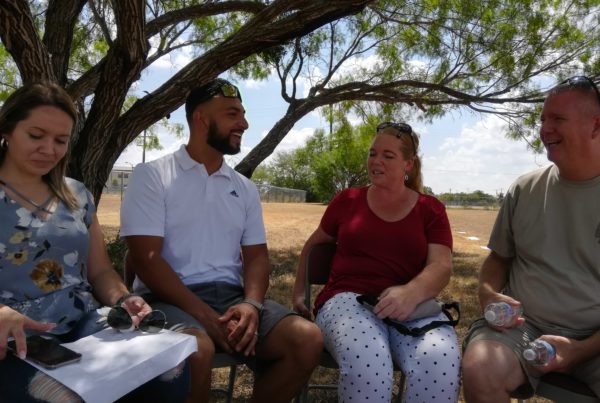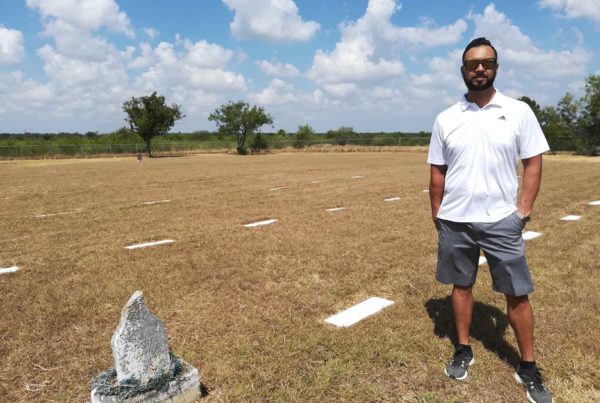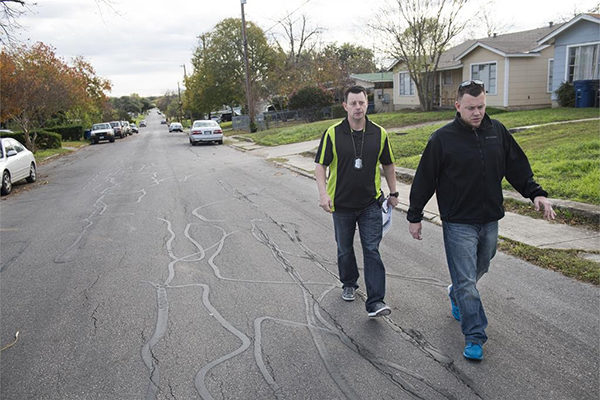In 2019, the Texas Legislature took up some measures to address state hospitals and school mental health. But important issues remain: lawmakers still need to deal with the depleted mental health workforce and to address gun violence without fueling stigma.
Greg Hansch is executive director of the National Alliance on Mental Illness (NAMI) of Texas. Colleen Horton is director of policy at the Hogg Foundation for Mental Health at the University of Texas at Austin.
Hansch says the Legislature accomplished a lot this past session, especially in terms of state hospitals and school mental health:
“A couple examples in this most recent legislative session of big successes were: funding for the state hospital system to modernize and reconstruct some of the facilities that are available there to improve quality and access … and we saw probably some of the most significant children’s mental health reforms that we’ve ever seen in this state, really leveraging schools as an opportunity to intervene early.”
Horton says the Legislature failed to address the state’s mental health workforce:
“We have an extreme workforce shortage in Texas when it comes to mental health care. And we have to look more at why our percentage of doctors who participate in the Medicaid program is so low.”
Horton also says there’s underlying causes to mental health conditions that are often overlooked:
“It’s often about the societal illnesses that create communities that aren’t mentally well, or mentally healthy. … We also have to think about, especially when we talk about violence, is the societal illnesses such as racism, bigotry, social isolation, despair, anger – those things aren’t mental illnesses. But research has shown that they are the cause of much of the violence that we have in our country.”
Improving mental health is a bipartisan issue in Texas, but Hansch says it often gets lost among other policy priorities:
“In the last legislative session, funding for the public education system and addressing property taxes were the signature issues.”
Hansch expects mental health and the criminal justice system to be a key topic for lawmakers during the 2021 session:
“One of the big points of conversation in [the] next legislative session is going to be how well are judges, county officials, sheriffs and other local decision-makers … working together and with the state to change the fact that the criminal justice system is the default provider, or the default setting, where people with mental health conditions end up.”
Hansch says recent mass shootings have been catalysts for improving the mental health care system:
“I think there are better reasons to address mental health in our state than trying to address mass shootings, but my sense is that the train has left the station. The Legislature is going to look at the root causes of mass shootings and keep identifying mental health as one of those factors.”
But Hansch says it’s unclear what legislation could come out of these moments of crisis:
“I do think we’re going to have a robust conversation about access to firearms. In some cases, we can see how a person with a mental health condition who has access to a firearm can be a dangerous situation … to [themselves], but we also need to think about danger to others.”
Horton says blaming mass shootings exclusively on mental illness fuels stigma:
“[It] can really do a lot of damage and create a lot of stigma that will prevent people from seeking out mental health services. If we talk about creating registries … then how many people will be willing to go to a mental health professional and get assessed?”
Hansch says NAMI supported proposals for so-called red flag gun laws that don’t single out those with mental health conditions:
“Our support for those proposals only exists because those proposals don’t specifically target people with mental health conditions. The way that a red flag law should be designed is that it targets people who are exhibiting dangerous behavior, and the judge has discretion about what constitutes [that].”
Rates of mental illness are similar in other countries, but not rates of gun violence, Horton says:
“Other countries have the same rate of mental illness and mental health conditions as we do in our country and they don’t have the same rates of gun violence and mass shootings.”
It’s essential that those living with mental health conditions participate in policymaking, Horton says:
“Having the person with lived experience of mental health conditions and substance use conditions at the table, in the hearing rooms, at the agency … far too often advocates and family members and policymakers think we know how to do it, think we know what people need, and we often don’t.”















